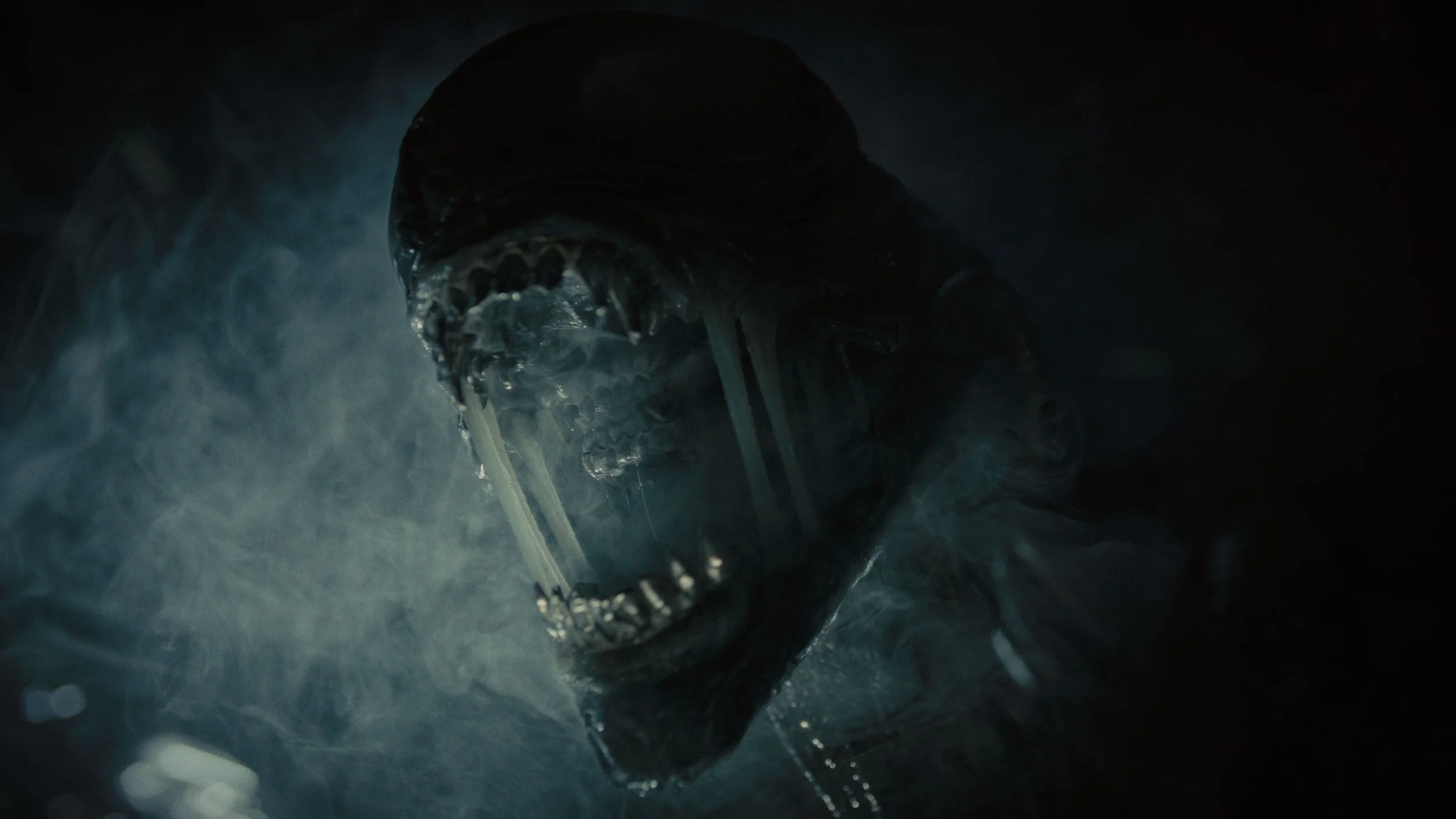“Alien: Romulus” - Film Review
“In space, no one can hear you scream.” The survivalist horror genre has been long-terrorized by the alien race known as the Xenomorphs, and in Alien: Romulus, this extraterrestrial menace once again rears its ugly, banana-shaped head. A direct sequel to Ridley Scott’s 1979 Alien, Romulus is the seventh entry in the Alien franchise. Technically, Romulus acts as a standalone “interquel,” with a new cast of characters who find themselves lost and alone in space, hunted by Xenomorphs with little hope of survival. In that regard, this interquel has much in common with the original film, but in the hands of modern horror master Fede Álvarez, Romulus is a new nightmare that stands on its own.
On the mining colony of Jackson's Star, people are trapped in never-ending contracts with the Weyland Yutani company. One such person whose contract was unexpectedly extended is Rain (Cailee Spaeny). She’s alone on the planet with her brother, Andy (David Jonsson), a synthetic that was programmed by her father to have Rain’s best interests as his primary directive. Rain’s ex-boyfriend, Tyler (Archie Renaux), approaches her with a plan to get Rain, Andy, and their friends a chance to escape life on Jackson’s Star for Yvaga, a planet with far better living conditions. Tyler’s plan is to investigate a rundown spacecraft that’s coming into Jackson’s Star’s orbit and find cryo stasis chambers that will allow him and his friends to travel to Yvaga. What Tyler couldn’t possibly have known is that this ship is full of Xenomorphs ready to wreak havoc.
20th Century Studios
Romulus, unlike its original predecessor, is a grounded, human story. The script, penned by Álvarez and frequent collaborator Rodo Sayagues, is as interested in the blood, guts, and gore of the Xenomorphs as it is in the humans who are risking everything for a chance at a better life. The desire to change one’s circumstances has always pushed humanity to explore. It’s what has sent people across oceans and continents, as well as into space. The main cast of Romulus is willing to take these risks for the possibility of something better on the horizon. Jackson’s Star is a dirty, hopeless mining planet where the sun never shines. Giving these characters the backstory of wanting to better their own lives adds higher stakes to the film. The original was a simple survival story featuring people whose backstories the audience knew nothing about. We don’t know what Ripley (Sigourney Weaver) and her crew have waiting for them. Sure, survival is survival in the face of a Xenomorph, but Romulus makes the audience want Rain to finally experience a life in the sunshine.
The quieter, more reflective moments in Romulus don’t mean that Álvarez skimped out on the terror. In fact, it’s quite the opposite. The Xenomorphs in Romulus are nastier, gnarlier, and as ruthless as ever. Those coming to the film to see a chestburster and gallons of acidic blood will get their fill. There are also plenty of surprises that await, too, in terms of the Xenomorphs. Romulus has created a compelling blend that will appeal to those looking for gore and those who relish the human connections that are tested in dire situations.
20th Century Studios
The world Álvarez has created is immersive, and Romulus’ use of sound is a thrill. There’s nothing like being in a big, loud blockbuster movie and hearing the noise sucked out of the theater. It’s as if the entire audience and the film itself are holding their breath, waiting on a precipice to see what happens next. Álvarez’s camera feels weightless as it turns in zero gravity in a way that may make those watching get a little seasick. The walls of the theater seem to move with the space station on screen. It’s a trippy feeling that adds to the moviegoing experience. Romulus pays homage to the original Alien with its use of shadows, light, and darkness. The look of the film is retro, yet exciting and new. It’s no surprise that when they’re given an immersive set, the actors are able to freely perform. All of them turn in captivating performances, but it’s Spaeny and Jonsson who fully command the screen. To see Spaeny go from Priscilla Presley to alien-killer in less than a year is a transformation that’s as impressive as it is thrilling. Similarly, Jonsson went from charming rom-com lead to robot synthetic whose actions can change on a dime. The two of them are the heart and soul of Romulus.
To call Romulus a legacy sequel would be to lump it in with other remakes and sequels that don’t have the legs to stand on their own. Romulus ranks with this year’s Twisters as an example of what can happen when a director with a distinct voice and vision plays in the sandbox of a beloved franchise. Romulus is the best kind of nightmare; the one you get to watch on a big silver screen to escape the dog days of summer.
support your local film critic!
~
support your local film critic! ~
Beyond the Cinerama Dome is run by one perpetually tired film critic
and her anxious emotional support chihuahua named Frankie.
Your kind donation means Frankie doesn’t need to get a job…yet.
Follow me on BlueSky, Instagram, Letterboxd, & YouTube. Check out Movies with My Dad, a new podcast recorded on the car ride home from the movies.


